How Do You Become a Financial Advisor?

Understanding the Numbers
When reviewing job growth and salary information, it’s important to remember that actual numbers can vary due to many different factors — like years of experience in the role, industry of employment, geographic location, worker skill and economic conditions. Cited projections do not guarantee actual salary or job growth.
When it comes to planning for a healthy financial future for themselves and their family, many people feel overwhelmed and don’t know where to start. That’s why they turn to financial advisors for assistance. With training, education, certification and experience, a financial advisor can help clients develop a plan and the necessary steps to get there, to ensure financial security and peace of mind.
What Does a Financial Advisor Do?
A financial advisor helps clients reach their personal financial goals. This can often entail a lifelong relationship and long-term planning. A financial advisor can explain to their clients strategies around investments and risk management, retirement and estate planning, taxes and insurance, and more – and how all these factors affect their client’s ability to save and grow their money.
Should I Become a Financial Advisor?
When pursuing your Bachelor of Science in Finance, think about if you’re interested in going into a personal financial advisor role in your future career. If so, it is highly advantageous to add a concentration in financial planning to your education.
In addition to learning about investments (using trade-simulation software), securities, insurance, pension plans, real estate and more financial topics, the concentration in Financial Planning component will prepare you to sit for the CFP® exam – an important and respected industry certification.
Using Case Studies
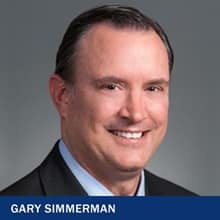
You’ll learn the nuts and bolts of being a financial planner and how to best advise your clients. This knowledge will be solidified via your work with case studies. “A finance education will offer a capstone project of a complex case study, where the student will turn it into a financial plan and be able to present it clearly and concisely,” said Gary Simmerman, CFP® professional and finance adjunct faculty at Southern New Hampshire University (SNHU). “You need to not just develop it, but be able to communicate it to laypeople. Sitting for the CFP® exam will be contingent on that case study project. It’s critically important.”
Case studies are where you will hone your communication skills. After creating your comprehensive financial plan, your work on a case study “touches on each topic and teaches presentation skills; communication is important,” said Craig Allen, CFP® professional and finance adjunct faculty at SNHU. “Yes, you need to be able to build a portfolio and analyze it. But you also need to know how to condense and present that information, which is an art in itself. So we not only teach analysis, but also how to be able to communicate and heighten client comprehension for making their decisions.”
Facets of Being a Financial Advisor
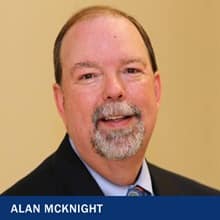
In a program with a concentration in Financial Planning, “you’ll learn investment planning, insurance, retirement and estate planning, and budgeting,” said William Alan McKnight, CFP® professional and finance adjunct faculty at SNHU. “(It) is very project-based, where students work through a particular client profile. They learn not just the fundamentals of how, but also how to have the conversations on the potential problems or issues that a client will face. The (program) gives you an opportunity to practice on client profiles while learning the fundamentals.”
What is CFP® and Why is it Important?
Some concentrations in Financial Planning prepare you to sit for the defining industry credential at the CFP®, or Certified Financial Planner®, exam. Not every job in finance needs or requires it, but for those pursuing a career specifically in personal financial planning, accomplishing the CFP® certification will set you apart.
- The CFP® Exam and Credential: Obtaining the CFP® mark shows your commitment to excellence and ethics in the field. It is the industry gold standard. In addition to related experience and specific education requirements, in order to be a recognized CFP® practitioner, success at an hours-long CFP® exam is required.
According to the CFP Board website, “the CFP® certification examination is a key requirement for achieving CFP® certification. By passing the exam, you demonstrate that you've attained the knowledge and competency necessary to provide comprehensive personal financial planning advice to your clients.”
In order to sit for the CFP® exam, you have to take specific coursework to qualify. Those with existing related degrees would need to add this additional education; if you can obtain it while you’re getting your degree, you will save time. “If you have an accounting degree, for example, before you sit for the CFP test, you’d have to go online and take a variety of additional coursework,” Allen said. “The benefit to taking that concentration at SNHU is you’re prepared to sit for the test and you’ve met the qualifications to sit for it” concurrent to obtaining your bachelor’s degree.  Why the Program is Necessary: Why is searching for a CFP Board-Registered Education Program important for aspiring financial advisors? “The CFP® certification indicates a financial planner has met the CFP Board’s four E’s: education, examination, experience and ethics,” said Kristin Regis, associate dean at SNHU. “The education component includes completing a CFP Board-Registered Education Program and then 30 hours of continuing education each reporting period.”
Why the Program is Necessary: Why is searching for a CFP Board-Registered Education Program important for aspiring financial advisors? “The CFP® certification indicates a financial planner has met the CFP Board’s four E’s: education, examination, experience and ethics,” said Kristin Regis, associate dean at SNHU. “The education component includes completing a CFP Board-Registered Education Program and then 30 hours of continuing education each reporting period.”
“These requirements help to reassure potential clients that the financial planner has the knowledge to help them reach their financial goals and understands how to advise (them) ethically,” Regis said.
There are currently only 13 online programs that are recognized by the CFP Board, SNHU being the only one in New Hampshire. “It’s no small feat to be an accepted university worthy of preparing people for the CFP® exam,” said Marli Erickson, CFP® professional and finance adjunct faculty at SNHU.
Your career as a financial advisor will be jump-started with this added certification as part of your CV.
“This honed focus – e.g., a finance degree versus a concentration in financial planning – it’s not a common college program,” said Brendan Mann, CFP® professional. “You’ll get a leg up on other graduates with this curriculum, and you’ll be well ahead touting this rare commodity and opportunity to specialize. SNHU is one of the rare universities that offers it online.”
What Qualifications Do You Need to Become a Financial Advisor?
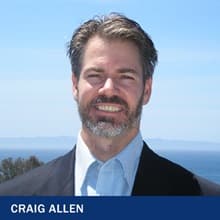
If you decide to become a personal financial planner, you can take your career from “financial advisor” to a more elite level. Being a CFP® practitioner will increase your reputation within the industry, and with potential clients. “The CFP® certification definitely helps you gain knowledge and prestige, which is valuable for financial planners and also CPAs. It's really a great credential,” Allen said.
CFP® practitioners can be proud to hold out this certification. “It shows I have a fiduciary responsibility that supersedes my own (interests and benefit),” Erickson said. “I want to be seen as the gold standard of financial planning.”
- It’s respected in the industry: “When you’re looking for career opportunities, the most positive aspect of the CFP® designation is the marketability,” Allen said. “It’s the most recognized industry credential, besides possibly the CPA. If I was a student pursuing a career in the financial industry, looking for the best bang for the buck and how to attract clients, the CFP® mark is the most recognized by the public and can help you build your practice,” he said.
- It’s respected by potential clients: When seeking financial advice, those who have done their research will know their best bet is to retain the services of a personal financial planner with the CFP® certification.
The strong code of conduct and standards of practice have a stringent set of rules that do not necessarily bind a financial advisor who is not a CFP® practitioner. “The CFP® code of ethics resonates with the public as a higher quality fiduciary duty, putting the client first,” Allen said. - You’ll be ahead of the game: “If you go apply at a firm without it, you’d have to pass that CFP® exam and before that, take the coursework leading up to it,” Allen said. “And that’s time (the employer is) waiting before generating revenue. You have that advantage over other applicants if you’ve already completed that coursework” during your degree program.
What Qualities and Interests Should You Have?
At its core, a career as a personal financial planner hinges significantly on the development and tending of long-term client relationships. Therefore, it’s important to your success and job satisfaction that you are the type of person who enjoys this level of interpersonal communication.
Three skills that can help you as a financial planner include:
- Caring about client’s evolving lives and goals
- Listening to their concerns and life changes
- Communicating concisely and effectively, especially complex data and technical information
Here's how financial planners can use those skills.
Caring: Each word in “personal financial planning” is just as important as the other. In contemplating the first, however, you should consider if you would enjoy developing close relationships with clients which may last decades. Financial advisors can almost feel like part of their client’s family.
“A big part of (this job) is the relationships formed over time with clientele,” Allen said. “I’ve had some clients for more than a decade. Consider all the changes in your own life in the last five, 10 years. If you’re working with a client on an ongoing basis, you experience those changes with them. A very real aspect of this business is the personal component. You need to understand their needs and objectives.”
A career in personal financial planning is a blend of left and right brain modalities. The technical knowledge and aspects you utilize are tempered with the more creative and emotional facets of the job. “You have to have the mind of a capitalist, and the heart of a social worker,” Mann said.
Financial changes – good and bad, big and small – can have a huge emotional impact on your clients. They will need to know you care about them and their future. “I would stress the importance of empathy in this career,” Simmerman said. “You will need to look at a situation and synthesize multiple concepts to create solutions specific to your client’s needs. You’ll need to be someone who genuinely wants to help people achieve their financial goals.”
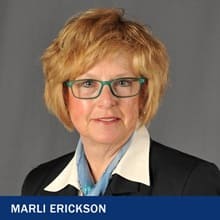
Listening: A large part of being a financial advisor is knowing when to stop and listen. Each client has their own journey, and building trust with them will come from their belief that you are listening – to their goals, their fears, and the evolution of their family.
“My passion is listening to people's stories,” Erickson said. “How did they get to where they’re at, why they sought me out as a CFP® practitioner, and (using that to determine) what can I do for them. You have to consider yourself to be a service-minded person.”
Communicating: In addition to the various technical and analytical aspects related to education and training for this career, the so-called “soft skills” are also necessary as a financial planner. The ability to effectively communicate complex concepts to layperson clients, concisely and clearly, are key to success and long-term relationships.
Strong presentation skills are always valuable, but in the world of financial planning, it’s vital to effectively advising clients in a changing world. With many people depending on the stock market to grow their 401ks, market volatility can trigger some to make rash decisions. It’s the job of the financial advisor to warn against making monetary strategy changes based on emotions.
“A good advisor is going to empathize with the situation the client is in, and then help them take the emotion out of their decision,” Simmerman said. “What is their risk tolerance, their financial situation? That has to be part of the assessment when you’re making recommendations to clients.” Tact and clarity of communication are top tools a good advisor will have at the ready.
Are Financial Advisors in Demand?
The career outlook for financial planning is very good. According to the Bureau of Labor Statistics, employment of personal financial advisors is projected to grow 7% by 2028, faster than the average for all occupations. The median annual wage for personal financial advisors was $87,850 in May 2019.
The CFP Board website suggests some positions that would benefit from having the CFP® certification:
- Financial Planner
- Financial Analyst
- Client Services Advisor
- Investment Manager
- Wealth Management Advisor
- Portfolio Manager
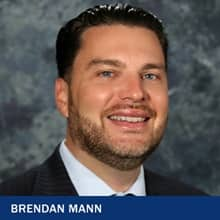
“The most successful advisors in the industry are the people strongest in interpersonal skills, who enjoy teaching, who like fostering the personal long-term relationships, and who have concern for the client,” Mann said. “You also need to have a certain intellectual level – CFP® certification is challenging. You’ll need aptitude and interest in analysis as well as the ability to interact with families and balance the interpersonal and analytical sides.”
If you like the idea of financial planning but are not as interested in the interpersonal component, there are other opportunities that are not client-facing. “There are financial planning jobs that would benefit from your CFP education (that are) not necessarily engaging with clients,” Simmerman said. “There are positions where you’re not personally involved with the clients, but are in a support role – more behind the scenes, developing investment solutions. You’d benefit with the finance degree and CFP® certification,” he said.
You could work for a firm that builds model portfolios that they offer to clients. Roles that aren’t personal financial planners could include duties of examining various types of clients (risk tolerance, goals, etc.), and creating sample portfolios based on those personas; or creating personalized options specific to one particular client, that a personal financial planner would then present.
Support roles could include:
- Investment product development
- Investment support specialist
- Investment analysis
“In those types of supporting and related positions, that experience can also count toward your hours requirements for getting to use that CFP® mark,” Simmerman said.
Why Now More Than Ever?
Baby boomers are driving the need for more personal financial planners in two ways. First, they’re hitting retirement age right now, and are paying rapt attention to their financial needs and upcoming transition. Also, many CFP® certificants are themselves boomers. “The CFP® certification began in 1972, when I graduated high school,” Erickson said, “so those people are also aging out of their financial planning jobs.”
BLS corroborates this: “As the population ages and life expectancies rise, demand for financial planning services should increase.”
Times have changed from when our parents’ finances took up only a folder or a drawer. “Financial planning has evolved so much that the ‘business of being a family’ requires its own (office in the home),” Erickson said.
With that new expanded consideration, personal financial planners are now needed more than ever, to help navigate the way. “It’s OK for people not to fully understand everything they need; it’s too vast,” Erickson said. “You need a financial planner who knows the complexities of your needs and investments and retirements. It’s too much for a layperson to know it all.”
A Commitment That Shows
Employers and clients alike will respect the level of hard work and dedication to your craft that is demonstrated by obtaining your CFP® certification. “I don’t know a person with a CFP® certification who doesn’t love it, who isn’t passionate in what they do,” Erickson said. “It’s quite an emotional commitment. (We’re) experts. We have on-the-job experience and education. We want to share our knowledge to help people achieve financial success.”
Kathleen Palmer is an award-winning journalist and writer.
Certified Financial Planner Board of Standards, Inc. (CFP Board) owns the CFP® certification mark, the CERTIFIED FINANCIAL PLANNER® certification mark, the CFP® (with plaque design) certification mark and the CFP® (with flame design) certification mark in the United States, which it authorizes use of by individuals who successfully complete CFP Board's initial and ongoing certification requirements. CFP Board also owns the CFP BOARD® service mark. Any marks owned by CFP Board are used with permission.
Explore more content like this article

SNHU Spotlight: Jonathan Oubenslimane, BS in Business Administration Grad

How to Become a Recruiter

What Degree Do You Need for Human Resources?
About Southern New Hampshire University

SNHU is a nonprofit, accredited university with a mission to make high-quality education more accessible and affordable for everyone.
Founded in 1932, and online since 1995, we’ve helped countless students reach their goals with flexible, career-focused programs. Our 300-acre campus in Manchester, NH is home to over 3,000 students, and we serve over 135,000 students online. Visit our about SNHU page to learn more about our mission, accreditations, leadership team, national recognitions and awards.

